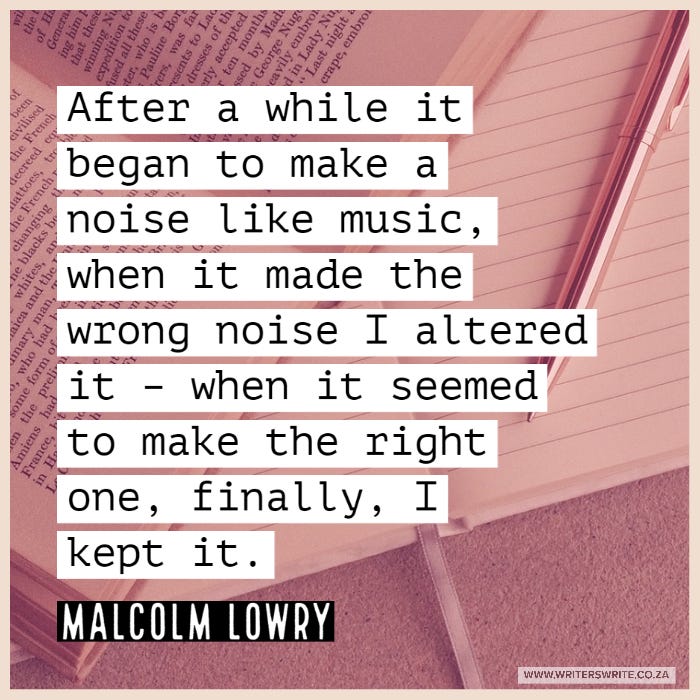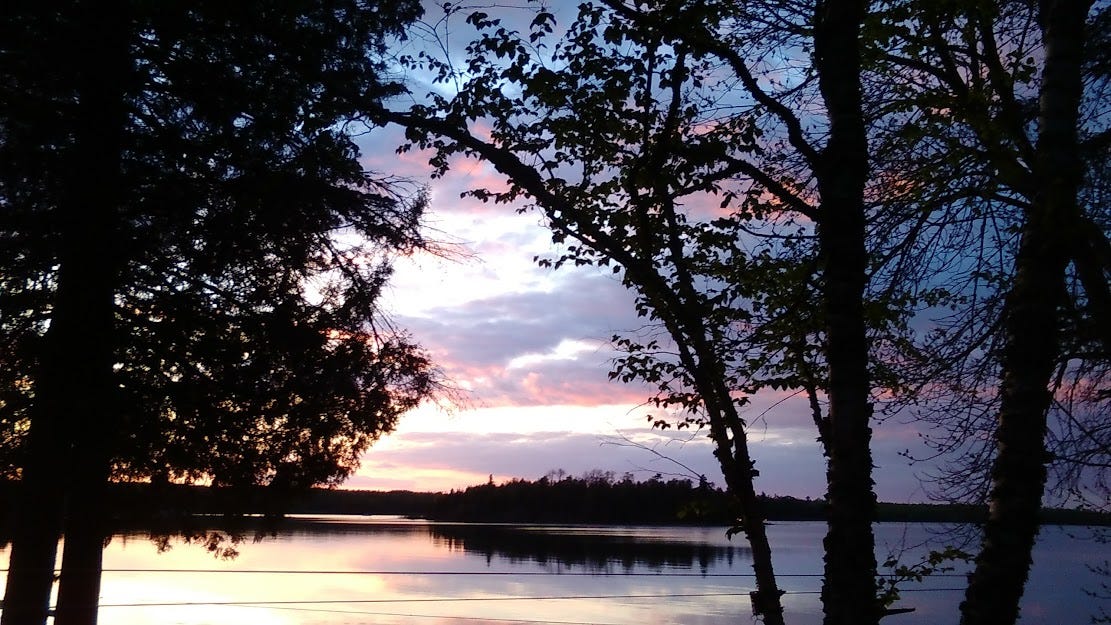Hello my dear, patient friends. If you’re still here, it means you might be okay with me wandering away now and then as I contemplate my new life or get bogged down in a widow’s red tape or just find pleasant distractions in reading or looking out the window.
I won’t bore you, or myself, with the details—I’ll just say it’s different. Part of it is a royal pain in the ass, but other parts are enlightening and kind of fascinating. I’m having to make constant decisions while my mind is ajumble and not particularly trustworthy, and because I know I’m not thinking straight, I’m taking oceans of time making each decision. It’s exhausting! I wrote a piece for Constant Commoner that gets into it a bit.
But I found the quote above and recognized that nowadays almost every reading choice, as well as every writing choice, is based on how I’m going to feel rather than what I’m going to learn. My feelings are always near the surface, threatening to burst out when I least expect them, so I’m wary. I’m not sure enough about them yet, so I protect them by carefully choosing what I read, the music I listen to, the words I put down as mine. And throughout, I’m noticing a pattern: it’s all about the rhythm. There’s a comfort in those lulling words and sounds, and I crave it. (The one exception to my new rule is in my opinionating. But even then, except for the occasional piece written in a rage when I can no longer keep quiet, I tend to keep it short, sticking mainly to Twitter, where I can say what I want to say in 280 characters or less.)
I’ve come to believe you can say a whole lot of what appears to be nothing, but if you get the rhythm just right it can be enough. Even more than enough. Because my early background was in freelance writing to an editor’s specifications, I had to grow comfortable with writing essays that create a mood rather than inform.
What it takes is time. No rush. The beauty is often in observing the little things—the things a casual observer might overlook, but I, as the writer, must examine and point out. I become the witness, and, if I do it right, you’ll appreciate my having shared it with you.
My grandson turned me on to J.A Baker’s ‘The Peregrine’, and it’s about as divine a contemplation of nature and obsession as I’ve ever read. (I just found this review and was startled to read the reviewer’s first paragraph, where she describes her own grief and the reason this book resonated. It could be my grandson knew exactly what I needed, too.)
Here’s a short passage to show you what I mean:
I saw my first peregrine on a December day at the estuary ten years ago. The sun reddened out of the white river mist, fields glittered with rime, boats were encrusted with it; only the gently lapping water moved freely and shone. I went along the high river-wall towards the sea. The stiff crackling white grass became limp and wet as the sun rose through a clear sky into dazzling mist. Frost stayed all day in shaded places, the sun was warm, and there was no wind.
I rested at the foot of the wall and watched dunlin feeding at the tide-line. Suddenly they flew upstream, and hundreds of finches fluttered overhead, whirling away with a ‘hurr’ of desperate wings. Too slowly it came to me that something was happening which I ought not to miss. I scrambled up and saw that the stunted hawthorns on the inland slope of the wall were full of fieldfares. Their sharp bills pointed to the northeast, and they clacked and spluttered in alarm. I followed their point and saw a falcon flying towards me…
…This was my first peregrine.
There are moments when I need that quiet languor. I’m finding it, too, in Mary Oliver. As I discover her poems, it’s as if she’s speaking directly to me. She knows me and says just the right thing. I’m reading ‘Long Life: Essays and Other Writings’, and I’m getting to know her better. She, too, found joy and solace in natural surroundings, and wrote about it in ways that make me catch my breath:
Once on a late spring day M. and I were standing on a boat deck when a humpback breached—leaped out of the water beside us—and trumpeted. Mist fountained from the blowhole, light flung a rainbow through the moisture; softly the mist rose and rained down on the deck and baptized all of us.
I’m in that kind of mood. All I can manage are reveries, but I’m struggling with the words. Trying to capture them seems like an invasion—the first draft a hodge-podge, horribly unworthy and almost a mood-killer. But I’m working at it—small miracle.
I went to the city for a few days to visit family, and the visits were wonderful, but it’s the city… I’m home on my island now, alone, cherishing every minute here as if it might be my last, which is foolish, but a feeling that won’t go away. Death came too near. I have to fight every day to remind myself that I’m not going to die, that nothing else is going to change. Not yet.
So this is where I am. How do you feel about rhythm? How important is it in your own reading and writing? Do you seek it out? Do you work to make it happen? Comments are open, as always. Let’s talk!
For further reading: Rhythm and Flow: How Three Famous Writers Use It to Draw You In





"I’ve come to believe you can say a whole lot of what appears to be nothing, but if you get the rhythm just right it can be enough." <--- This is basically my entire newsletter, haha 😂
The thing I always appreciate about Mary Oliver is how she distilled such beauty from tremendous pain. How can a person who survived that kind of childhood grow up to write as she did? It makes her poetry even more powerful for me.
I suspect rhythm is why I always read my writing out loud to myself repeatedly before I finalize it. It's also why I love Mary's poetry. I can imagine her reading it out loud to me. Poetry is meant to be heard, I think, and not simply read on the page, so it's inherent rhythm can be felt.